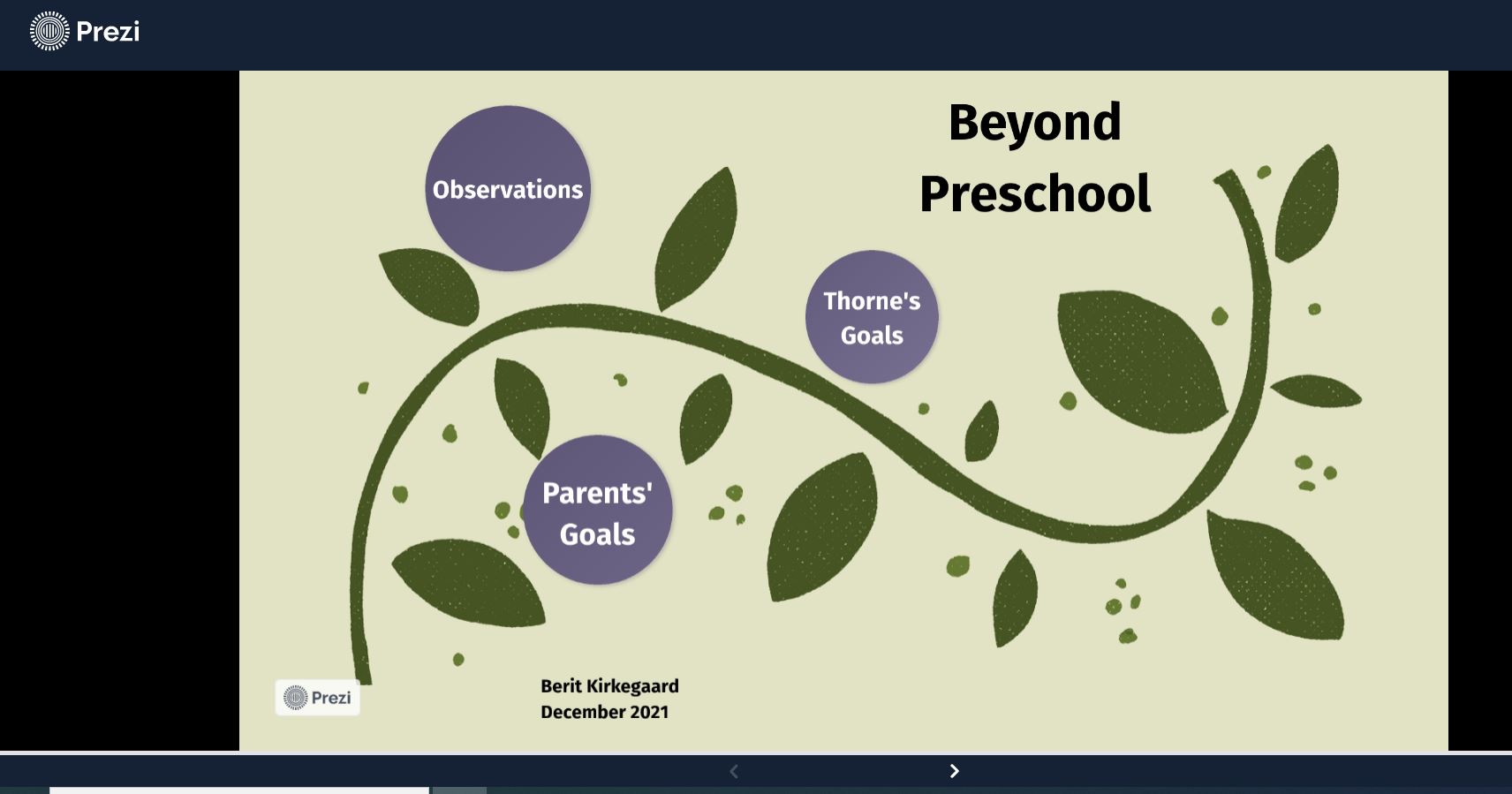Beyond Preschool: Exploring the Impact of Early Childhood Education
Faculty Advisor: Amanda Cox
Field Site: Phebe Anna Thorne School
Field Supervisor: Jodie Baird
Course Description:
This course aims to examine the influence of the goals and curriculum of preschool on children’s social-emotional development and growth through critical observation of preschool classroom practices and children’s interactions. This course was originally designed to explore the outcomes of early childhood education through both a developmental and sociological lens, but throughout the semester has shifted to instead focus on the purpose of a pre-schooling experience. Interviews with preschool-aged parents, observations, and conversations with teachers at Thorne about their practices, provided me with a better understanding of the value of a preschool education.
Praxis Presentation:
Please click here to access the presentation.


This sounds like such a fun engagement/experience. I really enjoyed hearing about the play-based curriculum students were provided. Not to mention, the level of communication these children seem to have is way beyond some adults I know which is insane! It really goes to show how much small actions and language choices can really affect behavior. Their growth in such a short period time is also extremely telling of the incredible capacity young children have to learn when given the means and opportunity. Pre-school is such a make-or-break space for kids, so it’s really comforting to hear when they have positive outcomes on children’s level of communication and problem-solving. Something I was curious about while going over your presentation is whether the positive effects of learning in this preschool have on kids when they enter and go through grade school. When kids enter more unwelcoming environments, how much does it undermine the work being done here? The hope is that they are strong and their parents help them to continue to foster the skills they learn at Phebe Anna Thorne School. Otherwise, it really makes us think about how these skills can be translated into the home and throughout their schooling experience and into life in general because these feel like really important life skills people should have that are too often forgotten.